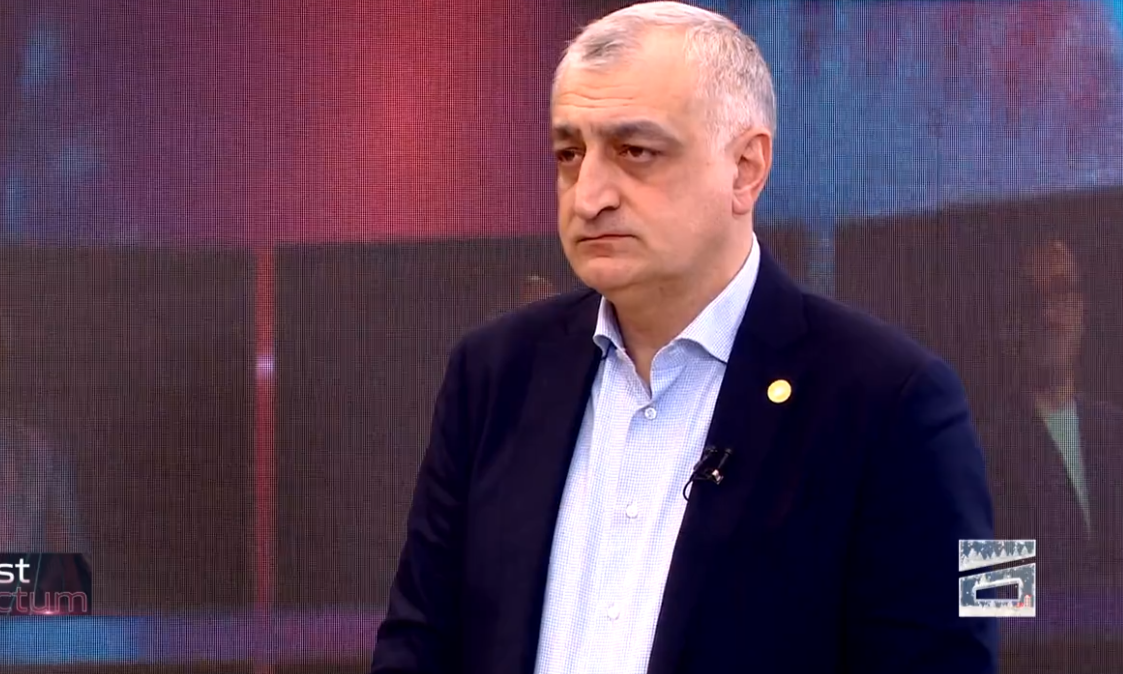
A demand to hold a repeated parliamentary vote in 2022 as a solution to ongoing political gridlock in Georgia has escalated disputes among opposition groups that so far have remained committed to their boycott against the new parliament.
The suggestion by Mamuka Khazaradze, the leader of the opposition Lelo for Georgia (Lelo) Party, to seek an extraordinary parliamentary election in 2022 triggered the latest public spat among Georgia’s opposition.
The Lelo head’s proposition deviated from an earlier coordinated opposition plan to force the ruling Georgian Dream party to hold repeated elections in early 2021.
After the 31 October parliamentary vote, all eight opposition groupings (six parties and two coalition blocks), including Lelo, refused to recognise the results of the election that gave a victory to Georgian Dream, the party in power since 2012.
On 11 December, the first day of the new parliament, the post-election negotiations between opposition groups and the ruling party were stuck in a deadlock and opposition groups skipped the parliament’s opening session, vowing to reject their parliamentary mandates.
The suspension of negotiation was followed by escalating disputes within the opposition. Some groups began to accuse others of considering to end the boycott and of purposefully torpedoing the talks.
While controlling 90 out of 150 seats — fewer than the 113 seats needed for passing constitutional changes — Georgian Dream lawmakers have insisted the parliament would be functional, and that at least some of the opposition parties would eventually join them in the legislature.
On 30 December, Georgian Dream Executive Secretary Irakli Kobakhidze claimed that they had already ‘communicated with at least five’ opposition groups from those eight independently.
While the details of backchannel talks remain unknown, Georgian Dream has not rushed to vote on 54 of 60 requests by elected opposition MPs to have their mandates formally abolished.
‘Serbian’ example
Since 26 December, Lelo representatives have argued that holding early parliamentary elections in 2022 would be a more realistic demand of the ruling party.
They cited a consultation earlier that day with the Chair of Serbia’s center-right People’s Party Vuk Jeremić as their inspiration. The People’s Party is part of the United Opposition of Serbia, a platform formed after the country’s disputed election on 21 June.
With the help from European mediators, Serbian opposition groups have successfully forced President Aleksandar Vučić to commit to holding extraordinary elections in 2022 instead of 2024.

Labour Party leader Shalva Natelashvili, the former parliamentary speaker Nino Burjanadze, and ex-Defense Minister Irakli Okruashvili were among the strongest and quickest to condemn Khazaradze’s idea.
Burjanadze’s United Georgia Party and Okruashvili’s Victorious Georgia Party fell short of the 1% threshold in the recent elections.
Lithuanian MEP Andrius Kubilius was the first to mention Serbia as an example worth ‘considering’ for Georgians. Speaking to TV channel Formula several days after Georgian Parliament opened, Kubiliius suggested that opposition groups and Georgian Dream return to the topic of an early parliamentary election only after holding local elections, slated for autumn 2021.
Salome Kandelaki of the Georgian Institute of Politics noted in a 29 December brief, the MEPs mediating the post-election negotiations in Serbia held more leverage against the government, since Serbia is officially an EU membership candidate country.
She added that, unlike their Georgian counterparts, some of Serbia’s opposition groups also boycotted the entirety of the election, not merely the official results of the vote, which could complicate the Georgian opposition’s efforts to obtain such strong support from Georgia’s western partners.







